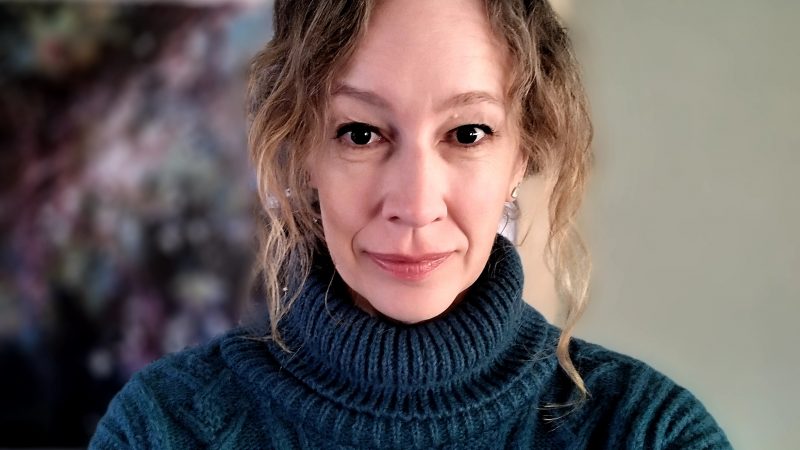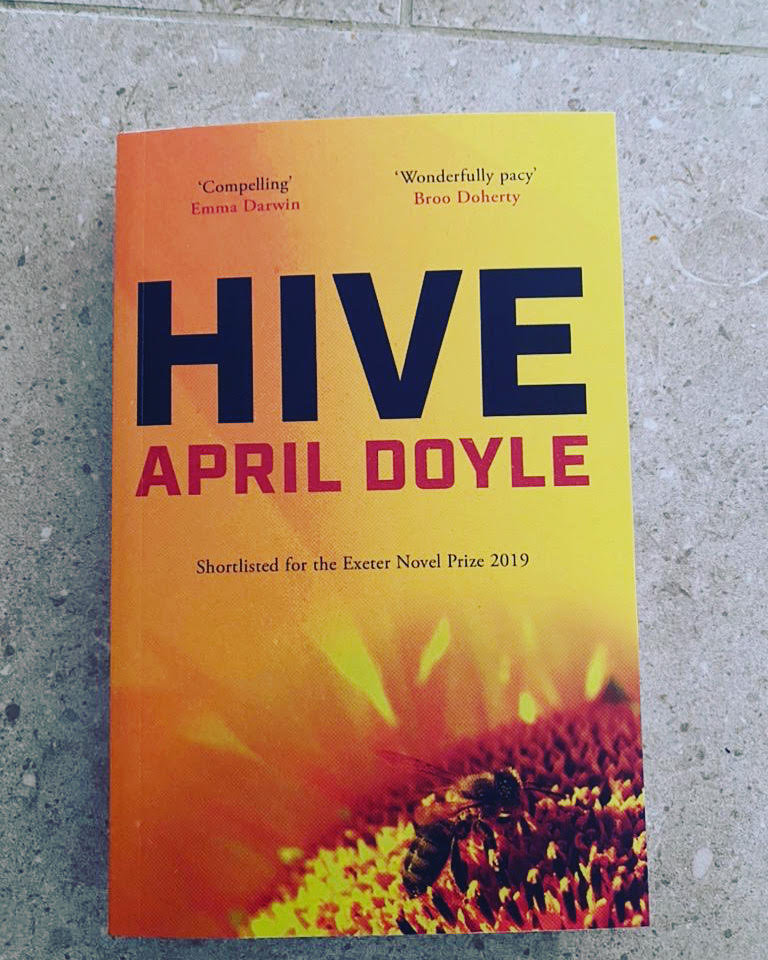23 February 2023
Bees, books and becoming an author!

Enlisting the help of over 300 knitted bees and seed bombs, April Doyle (BA Ed Art (Hons) 1994 and MA Creative Writing 2005) launching her debut novel, Hive, last year. The novel imagines a near-future Britain in which pollinators are all but gone, and robot pollinators take their place. Although a fictional novel, it addresses the very real issue of the decline in bees – a serious concern considering 85 – 95% of the UK’s crops are reliant on wild pollinators*. We spoke to April about her novel, the importance of the message behind it and how we can all do our bit to support the bees.
How did the idea of the book come to you?
Like many of us, I’ve become more and more aware of how climate change is contributing to catastrophic species decline. Farming Today on Radio 4 ran a series of reports on the alarming drop in pollinator numbers and the reasons for it. I think these concerns had all been brewing away quietly for a while before the idea came to me to write a novel.
How did you find the process of writing it?
It seemed as though the story downloaded into my brain in almost one go – this has never happened to me before! It felt like I had to write it as quickly as I could and keep up with the story before I lost it. Usually I find writing a first draft a bit more of a slog. I wrote the story and left notes to myself when there were points I needed to research – sometimes stopping to do additional research can really slow down the writing process and I didn’t want to do that.
The seed bombs highlight how we can all make small changes to be more sustainable to support our bee population. Simple actions like letting things go a little wild in part of your garden is a great way to make a difference.
How did the launch collaboration come about?
I contacted a colleague in Canterbury Christ Church Creatives University group about the possibility of running a pollinator awareness campaign when my book came out, and she approached the Sustainability team with the idea. The project was led by the Creatives and delivered in collaboration with the Academy for Sustainable Futures, the Student Green Office and the University Bookshop, and saw over 300 hand-crafted bees and wildflower seed bombs shared across campuses to raise awareness.
The seed bombs highlight how we can all make small changes to be more sustainable to support our bee population. Simple actions like letting things go a little wild in part of your garden is a great way to make a difference. Leaving a little patch of garden unmown and sowing some wildflower seeds for pollinators is an easy thing to do. Also leaving seed heads on plants instead of pruning them straight away – the birds will thank you!

How did your time at CCCU support you with this?
I was lucky enough to be in the first cohort of the MA in Creative Writing and the course director and tutors guided us in the direction of some amazing published writers and encouraged us with our own writing. It was a wonderfully supportive group and many people have gone on to publication. I was working for the University in Professional Services at that point and my manager was always very encouraging. My MA also opened up the door to teaching Creative Writing and Life Writing to adult learners as part of Canterbury Christ Church University’s Community Adult Education project from 2012-2018. I love teaching and it’s something I’ve continued with.
And what does the future hold?
I’m hoping to find a home for my second book; I’m currently sending it out to agents. And I’m currently at work on number three.
Hive is available from the University Bookshop and all good booksellers. It is also available as an eBook.
*(source: WildlifeTrusts.org)
0 comments on “Bees, books and becoming an author!”